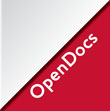The Knowledge Nexus and Transdisciplinarity

Date
2019-04-24Author
Allouche, Jeremy
Middleton, Carl
Gyawali, Dipak
Metadata
Show full item recordImpact
Abstract
Recent decades have witnessed the emergence of various movements concentrating on
interconnections among nature, society and technology – and the disciplines that deal with them –
whether under the broad title of environmental science, or more specific intellectual traditions like
transition theory (Geels, 2002; Loorbach, Frantzeskaki & Avelino, 2017; Schwanen 2018). This
compulsion is even more prevalent among resource managers who have to balance competing claims
for contradictory ends. Water managers, for instance, have long wrestled with the uncomfortable fact
that water is not so much a subject of study or praxis but more realistically a focal point where just about
every subject taught in a university's different departments intersect: from atmospheric physics to
hydrogeology, from civil engineering to economics, law, sociology, politics, ethics and even literature
(Gyawali 2010). How to solve a water problem facing a business, community or municipality without
running into opposition from competing claimants or disciplines has been a vexing and perennial
problem. Efforts to address this difficulty is what led to the emergence of the movement for Integrated
Water Resources Management (IWRM), itself a successor to the earlier approach which was the
hydrology-inspired river basin management of the 1960s (Chapter 3). Allan (2003) has argued that
IWRM too is failing since its votaries are not recognizing that it is broader than water and environment,
that both integration and management are political processes which requires greater disciplinary
ecumenism than practiced currently.
Citation
Allouche, J., Middleton, C. and Gyawali, D. (2019) 'The Knowledge Nexus and Transdisciplinarity', in J. Allouche; C. Middleton and D. Gyawali (eds), The Water–Food–Energy Nexus, RoutledgeMore details
https://steps-centre.org/wp-content/uploads/2019/04/Water-Food-Energy-Nexus-Chapter-4.pdfhttps://www.routledge.com/The-WaterFoodEnergy-Nexus-Power-Politics-and-Justice/Allouche-Middleton-Gyawali/p/book/9780415332835
Rights holder
© 2019 Taylor & Francis GroupCollections
- ESRC STEPS Centre [225]
